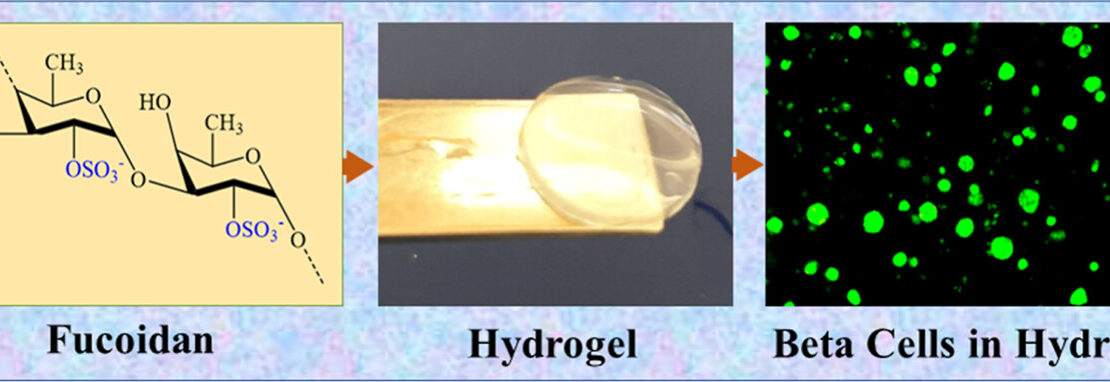- 30 March 2024
- Posted by: nemcatgroup
- Category: Publications

The sulfated marine polysaccharides, fucoidan and λ-carrageenan, are known to possess anti-inflammatory, immunomodulatory, and cellular protective properties. Although they hold considerable promise for tissue engineering constructs, their covalent cross-linking in hydrogels and comparative bioactivities to cells are absent from the literature. Thus, fucoidan and λ-carrageenan were modified with methacrylate groups and were covalently cross-linked with the synthetic polymer poly(vinyl alcohol)-methacrylate (PVA-MA) to form 20 wt % biosynthetic hydrogels. Identical degrees of methacrylation were confirmed by 1H NMR, and covalent conjugation was determined by using a colorimetric 1,9-dimethyl-methylene blue (DMMB) assay. Pancreatic beta cells were encapsulated in the hydrogels, followed by culturing in the 3D environment for a prolonged period of 32 days and evaluation of the cellular functionality by live/dead, adenosine 5′-triphosphate (ATP) level, and insulin secretion. The results confirmed that fucoidan and λ-carrageenan exhibited ∼12% methacrylate substitution, which generated hydrogels with stable conjugation of the polysaccharides with PVA-MA. The cells encapsulated in the PVA-fucoidan hydrogels demonstrated consistently high ATP levels over the culture period. Furthermore, only cells in the PVA-fucoidan hydrogels retained glucose responsiveness, demonstrating comparatively higher insulin secretion in response to glucose. In contrast, cells in the PVA-λ-carrageenan and the PVA control hydrogels lost all glucose responsiveness. The present work confirms the superior effects of chemically modified fucoidan over λ-carrageenan on pancreatic beta cell survival and function in covalently cross-linked hydrogels, thereby illustrating the importance of differential polysaccharide structural features on their biological effects.
